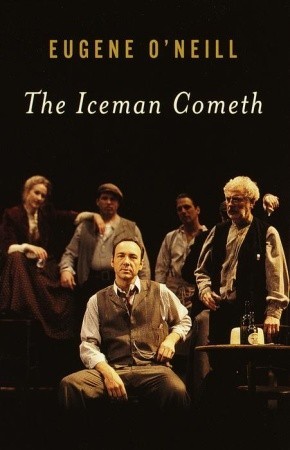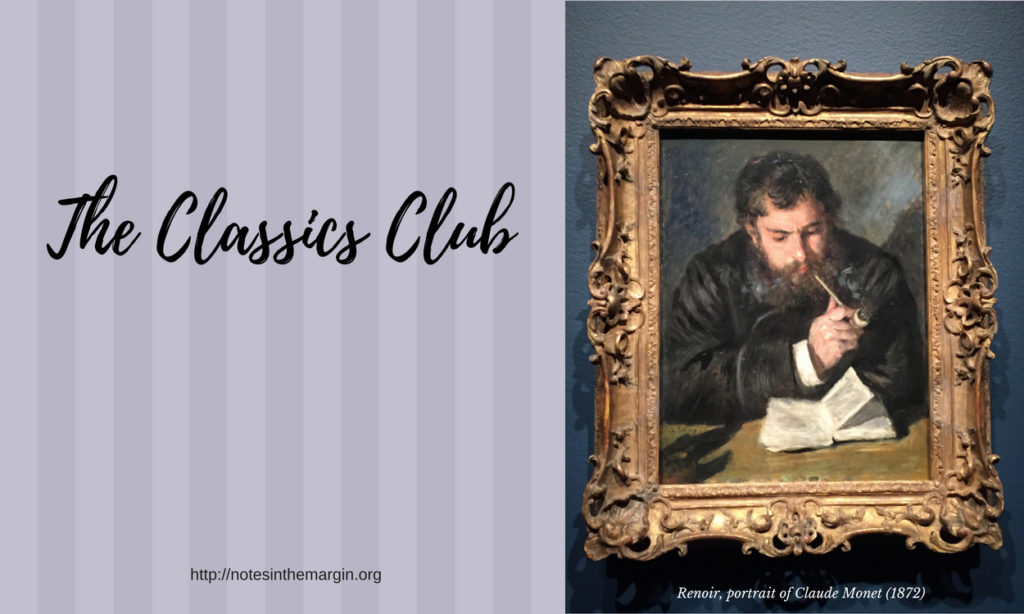Eugene O’Neill (1888-1953)
O’Neill, nevertheless, remains all but unique in his persistent and increasingly more nearly exclusive attempt to deal with modern life in such a way as to achieve the effect of classic tragedy. . . . Certainly no other significant playwright has so persisted in the conviction that, if a drama is to achieve great excellence, it must deal with man’s relation to God—or, if one prefers, with his relation to forces outside himself (p. 1249).*
Born in a hotel on Broadway in New York City on October 16, 1888, Eugene O’Neill was the son of James O’Neill, a popular actor of romantic melodrama. Eugene spent much of his youth on tour with his father or in different boarding schools.
After a year at Princeton (from which he was suspended for a prank) he worked at clerical and journalism jobs, then signed on as a sailor on voyages to Australia, South Africa, South America, and Central America. After his return to the U.S., he came down with tuberculosis in 1912. Five months in a sanitarium followed by a further year of convalescence provided him the opportunity to read widely.
In 1914 O’Neill attended a class in play writing at Harvard taught by the famous Professor George Pierce Baker. In the summer of 1915 O’Neill fell in with a group of vacationers from Greenwich Village summering in Provincetown, Massachusetts. This was the beginning of his experiences with improvised theatrical productions, which lasted until 1924. The members of this little theater group were widely interested in art, literature, and politics, including theories of nihilism, Marxism, and Freudianism, as approaches to social revolution.
Throughout his career O’Neill continued to explore dramatically “the eternally tragic predicament of man struggling for some understanding and some justification of himself in a universe always mysterious and often seemingly inimical” (p. 1244).*
O’Neill suffered from several health problems, including alcoholism and depression, for most of his life. He died in Boston on November 27, 1953, at age 65.
“The playwright of today,” O’Neill once wrote to George Jean Nathan, “must dig at the roots of the sickness of today as he feels it—the death of the old God and the failure of science and materialism to give any satisfactory new one for the surviving primitive, religious instinct to find a meaning for life in, and to comfort its fears of death with” (p. 1246).*
Four of O’Neill’s plays won the Pulitzer Prize for Drama:
- Beyond the Horizon (1920)
- Anna Christie (1922)
- Strange Interlude (1928)
- Long Day’s Journey into Night (1956; awarded posthumously)
He received the Nobel Prize in Literature in 1936.
*Reference
Literary History of the United States, 4th ed., revised (New York: Macmillan, 1974).
The Iceman Cometh by Eugene O’Neill

text © 1946
rpt. Vintage Books, 1999 ISBN 0-375-70917-7
The Iceman Cometh was completed in 1939 but wasn’t published and produced until 1946.
The play is set in the summer of 1912, in Harry Hope’s rooming house and bar in downtown New York. The bar features “[t]wo windows, so glazed with grime one cannot see through them” (p. 3). The walls and ceiling used to be white but are “now so splotched, peeled, stained and dusty that their color can best be described as dirty” (p. 3). A group of washed-up has-beens in various stages of drunkenness occupy this sad, dingy place as Act One begins: a former circus man, a former police lieutenant, a Harvard Law School graduate, a former Boer fighter, a former Captain of British Infantry, a former Boer War correspondent, a former editor of Anarchist periodicals, a former Anarchist, a bartender, and a couple of prostitutes, all residents of Harry’s rooming house.
In these assembled characters it’s easy to see the causes and events of the time that O’Neill was interested in exploring. All of them have outlived their former occupations and now share a denunciation of life, represented by their extreme states of drunken stupor. Larry, the former anarchist, sums up the situation of all of them in a speech near the beginning of Act One:
To hell with the truth! As the history of the world proves, the truth has no bearing on anything. It’s irrelevant and immaterial, as the lawyers say. The lie of a pipe dream is what gives life to the whole misbegotten mad lot of us, drunk or sober. . . . What’s before me is the comforting fact that death is a fine long sleep, and I’m damned tired, and it can’t come too soon for me” (p. 9).
The play’s main character is Theodore Hickman, known as Hickey, a transient hardware salesman whose impending arrival for Harry’s annual birthday party the others eagerly await. Hickey exhibits “a salesman’s winning smile of self-confident affability and hearty good fellowship. . . . He has the salesman’s mannerisms of speech, an easy flow of glib, persuasive convincingness” (p. 59). When he finally arrives near the end of Act One, he tells the others he has come to “save you from pipe dreams. I know now, from my experience, they’re the things that really poison and ruin a guy’s life and keep him from finding any peace. . . . Just stop lying about yourself and kidding yourself about tomorrows” (p. 63).
Act Two presents Harry’s birthday party. The characters express their dismay with Hickey for telling them that they all need to stop drinking and face reality by acknowledging their pipe dreams and admitting that they’ll never fulfill those dreams.
Act Three opens as the tomorrow Hickey has warned his companions about. The characters all spruce themselves up and swear off the booze so that they can go out and face the world, looking to get their old jobs back or find something else meaningful to do. But Hickey reminds them, “as I’ve told you over and over, it’s exactly those damned tomorrow dreams which keep you from making peace with yourself. So you’ve got to kill them like I did mine” (p. 142). After they’ve all left, Rocky, the bartender, predicts that everyone will come back. Hickey retorts, “Of course . . . By tonight they’ll all be here again. You dumbbell, that’s the whole point” (p. 147).
As Act Four opens, we see the characters once again sprawled around the bar. Each one is now even more embittered than before. Hickey tells them how he has dealt with the human condition they all face. In this bleak ending, with their hopes and pipe dreams finally and completely dashed, the characters accept life’s hopelessness and again drink themselves into oblivion in Harry Hope’s bar.
© 2019 by Mary Daniels Brown

